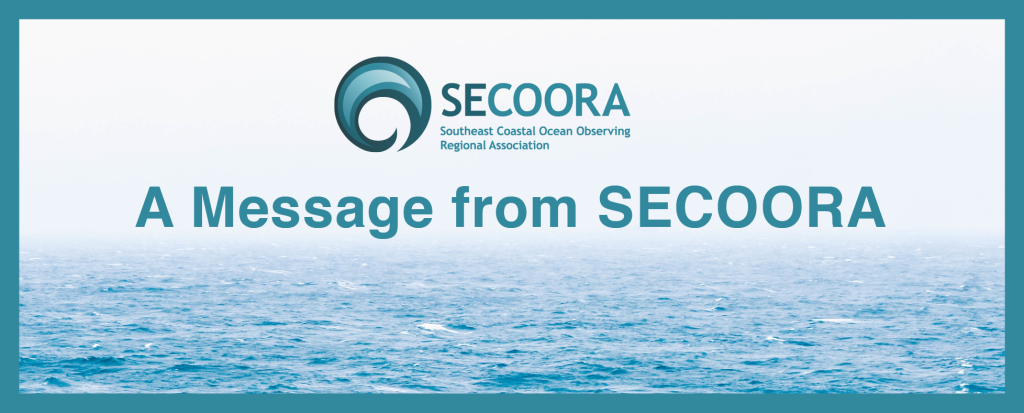
The SECOORA team is extending our support to all in the Southeast during this changing and challenging time. SECOORA is open for business as usual. We are fortunate to work remotely and be able to serve our mission, while being respectful to the interruptions to our professional and personal lives.
Updates on Operations
SECOORA staff is checking in with funded partners on impacts to operational activities. We will update this page if there are major changes in operations. At this time, SECOORA is still serving quality coastal and ocean data on our multiple services such as the Data Portal or the Marine Weather Portal.
Upcoming Events
The Drones in the Coastal Zone Workshop scheduled for the end of March has been rescheduled to October 14-16, 2020. Click here for announcement.
From the comfort of your couch – join us for our 2020 Annual (Virtual) Meeting May 18-19! Everyone will be able to tune in remotely for updates on SECOORA, IOOS and more. It will be not the same format as years prior, as it will be condensed into three or four webinar sessions. If you booked a room at the Hilton St. Petersburg Bayfront Hotel, you are responsible for cancelling your own room. We encourage you all to register HERE so we can email you the details as they become available.
SECOORA continues to share coastal and ocean observing stories and research through our webinar series. On March 24 at noon ET join us for the webinar “Where did my Fish go?” by Dr. Joy Young from the FACT Network. Click here to learn more.
SECOORA’s Response to the IOOS 5-Year Proposal Opportunity
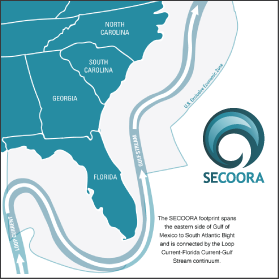
SECOORA is continuing to prepare for the next 5-year NOAA Integrated Ocean Observing System proposal opportunity as scheduled here. The IOOS Program Office has indicated that their existing schedule remains unchanged as of this week. All those interested in partnering with SECOORA in the 2020 IOOS proposal are strongly encouraged to continue planning their response to our upcoming solicitation for Letters of Intent, which is anticipated be released the week of March 23, 2020 and due May 26, 2020.
If unanticipated delays occur as a result of the COVID-19 pandemic, we will notify you as soon as feasible. If you anticipate that you or your institution’s ability to respond or participate will be affected by the pandemic, please contact one of the SECOORA staff via email (staff@secooraorgpact.wpengine.com).
Student Awards and Education Resources
Three of SECOORA’s on-going student awards deadlines are extended to May 15, 2020 at 5 PM. Please see info on the awards below. Each one is different!
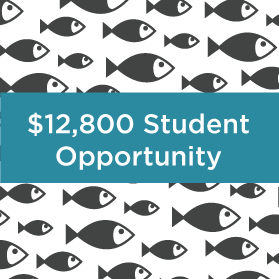
Examine How Temperature Affects Fish Movement Patterns in South Florida
Award Value: $12,800
SECOORA and the FACT Network are partnering to sponsor a graduate student scholarship to examine how temperature affects fish movement patterns in south Florida marine ecosystems. The funding for this award is provided through the generosity of our donors The Curtis and Edith Munson Foundation, Ocean Tracking Network, Innovasea, the SECOORA Education and Outreach Committee, and individual donors.
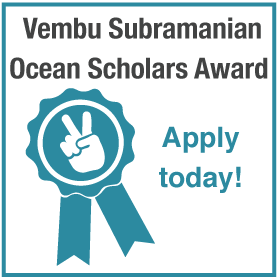
Apply for the 2020 Vembu Subramanian Ocean Scholars Award
Award Value: $2,500
In remembrance of Vembu Subramanian, SECOORA established an award for the next generation of ocean experts. The Vembu Subramanian Ocean Scholars award provides travel support for one undergraduate student, graduate student, or early career professional to present at a regional, national, or international meeting or conference.
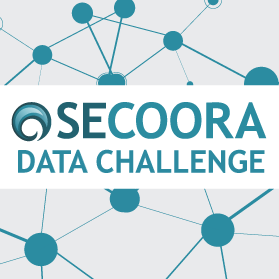
2020 Data Challenge: Using High Frequency Radar to Meet User Needs
Award Value: $3,500 (two prizes)
High frequency radars (HF radar) are land-based systems that measure the speed and direction of ocean surface currents in near real-time. HF radar data are used to track oil or other hazardous materials (such as harmful algal blooms) and assist in search and rescue missions at sea. SECOORA operates a network of 16 HF radars in the Southeast. SECOORA is asking students and early career professionals to explain the importance of HF radar and create tools that use archived SECOORA HF radar data. There are two prizes.
SECOORA has online ocean observing education resources you can try with you children at home. See a list of them below!
Investigating the Factors Affecting Wind Waves
Measure the height of the waves and answer questions like “height affected by the length of time the wind blows?”.
Materials: hair dryer, a container of water, erasable marker, ring stand (optional) ruler and stopwatch or timer
Investigating How Deep the Energy of a Wave Goes
Create waves in the container and answer questions like “is there a relationship between the size of a wave and the depth of wave energy?”.
Materials: Aquarium or clear container, water, corks, rulers, modeling clay, straight pins, and erasable markers
Making, Using, and Understanding a Barometer
Design your own barometer and explore how scientists use pressure changes to predict the arrival or strengthening of a storm.
Materials: Plastic baggie, Rubber band, Cup, glass jar (or a can), plastic wrap, rubber balloon, rubber band, file folder or stiff paper, straw, tape ruler, and scissors
Creating a Town to Explore Storm Surge
Make a town of with materials around your home and answer questions like “how does a hurricane’s storm surge affect the low-lying areas along the coast?”.
Materials: Long plastic container, milk jug, sand, water, or variety of which to build houses, sponges, Tiny toy animals, cars, block of wood or hair dryer, erasable marker
Related news
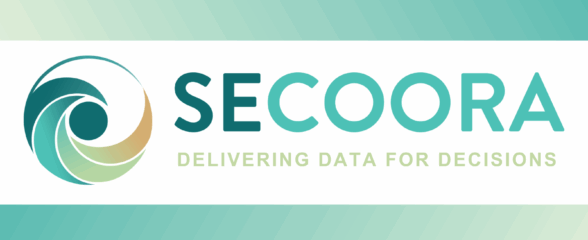
SECOORA Request for Proposals for a Data System Development, Operations, and Maintenance Service Provider
SECOORA seeks a Data System Development, Operations, and Maintenance (DMAC) service provider to act as a strategic partner while maintaining the current SECOORA Data System. Proposals are due to SECOORA by 5:00 PM ET, March 31, 2026.

Plankton Perfect: Using Imagery to Document Microscopic Marine Life
Dr. Enrique Montes is working to understand how plankton respond to changes in the ocean by capturing high resolution imagery with advanced technology. This work is funded by the Marine Biodiversity Observation Network (MBON) to use novel techniques like the Continuous Particle Imaging and Classification System (CPICS).

SECOORA Community Spotlight: Craig Harris
When Craig Harris signed on as the Emergency Management and Resiliency Coordinator for the city of Wilmington, North Carolina, he brought with him knowledge of water level sensors. SECOORA worked with Craig to install a water level sensor at the Love Grove Bridge in Wilmington, a site prone to flooding.